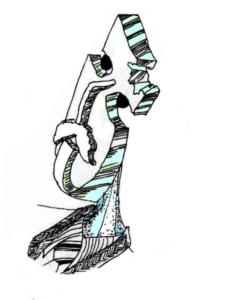Origin of Sisyphus (Σίσυφος) myth [in language-thought]
Sizif mifinin [dil-düşüncdə] gözəsi
 Sisyphus (painted 1548–49) by Titian, Prado Museum, Madrid, Spain
Sisyphus (painted 1548–49) by Titian, Prado Museum, Madrid, Spain
| In Greek mythology Sisyphus (Σίσυφος) was the founder and king of Ephyra. He was punished for cheating death being forced to roll an immense boulder up a hill only for it to roll down every time it neared the top, repeating this action for eternity. Therefore, tasks that are both laborious and futile are described as Sisyphean.
Now here, we will see that this myth had originated in Türkü language-thought. |
In Türkü (Azerbaijani Turkish):
daş /dʌʃ/: stone
daşımaq: to carry frequently
daş daşımaq: (to carry stones frequently) to do some laborious and futile job
| After checking the same origin of “stone” and “to carry frequently” as well as seeing the pragmatic meaning with “carrying stone[s] frequently” we can check the the sound-signify relation between “mountain” and “roll down” in Türkü. |
dağ [dagh]: mountain
dığırlanmaq [dighir-]: to roll down
sound-signification:
dağ
↓
dığ-ır
a: up, high
ı: down
r: active, dynamic
Obviously, the mythical character of Sisyphus (Σίσυφος) in Greek mythology has made its story and interpretation over the idea originated in mythical thought of Türkü language. Myths had been originated much more prior to their story forms.
daichronic system of daş (stone):
| discontinuat structure
qatmaz quruluş |
continuant structure
qatmar quruluş |
| daş (noun) (isim) | daş- (verb) (fel) |
. daşmaq ↔ daşımaq (– + vowel: general transitivity)
. ↓ ↓
. daşınmaq ↔ daşıtmaq
. (-ın: self transitivity) (-it: definite other transitivity)
. daşmaq: overflow
. daşımaq: to carry [somthing] frequently
. daşınmaq: to move oneself+belongings to other place
. daşıtmaq: to carry frequently some definite thing
| Naturally, it has started in mythical thought of mother language-thought. Then it has been characterized as myth in mythology. |
